Cheetah Conservation Fund Issues a Call to End Cheetah Trafficking to Mark 10th International Cheetah Day, 4 December
-

- by CCF Staff December 2, 2020
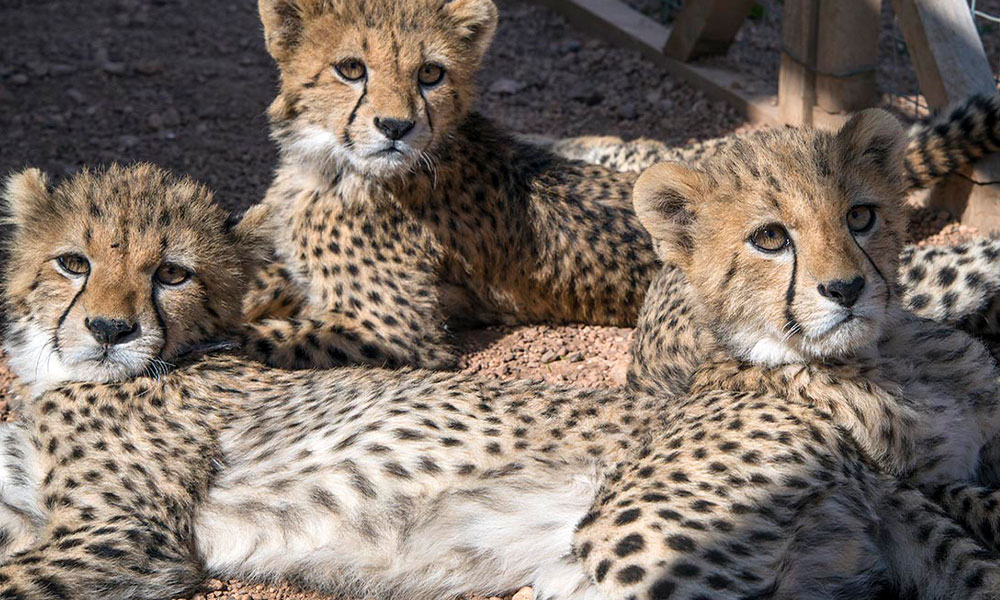
OTJIWARONGO, Namibia (1 December 2020) – Dr Laurie Marker, Founder and Executive Director of Cheetah Conservation Fund (CCF), issued a statement today from CCF’s Field Research and Education Centre in Otjiwarongo, Namibia, on the status of the wild cheetah. The announcement is timed to coincide with the 10th annual celebration of International Cheetah Day (ICD), an occasion to generate awareness for the plight of the world’s fastest land mammal and remind people that its survival depends on humans. With fewer than 7,100 cheetahs remaining in the wild and the species on a rapid decline, Dr Marker cautions the time to undertake action is now:
“International Cheetah Day reminds people of all ages that cheetah survival depends on human conservation action. Famous for being fast — cheetahs can reach speeds of up to 70 mph (110km per hour) in short bursts – the species is threatened by human-wildlife conflict, habitat loss, loss of prey, fragmentation, and lack of genetic diversity. In East Africa, cheetah cubs are being poached to supply the illegal pet trade. Despite being outlawed in many parts of the world, keeping a cheetah as a status pet is still popular in many places. The demand for cubs is having a devastating impact on the wild cheetah populations in East Africa. CCF research indicates an estimated 300 cubs are being taken each year from adult populations estimated to total only 300-500 individuals. The cubs are smuggled through the Horn of Africa primarily into the Arabian Peninsula, most launching from points off Somaliland and entering through Yemen.
The facts are shocking: five out of six poached cubs will die before they can ever become pets. After being taken from its mother, a poached cub is likely to die within three weeks due to negligence, dehydration, and malnutrition. If a cub survives to three months and becomes a pet, chances are it will not likely live longer than two years, due to improper diet, poor environment, and a lack of proper veterinary care. People put images of their pet cheetahs on social media to elicit admiration, but would animal lovers still ‘like’ those photos if they knew of the harm being done? Cheetah cubs belong in the wild with their mothers; cheetahs are not pets. We must help humans understand this before we ‘like’ a species to death.
Taking cubs from the wild is wrong, and it will ultimately lead to the species demise. Taking baby animals from their mothers when they are weeks-old denies them the opportunity to grow up and contribute to the wild population. CCF will continue to work with our partners in Somaliland, and throughout the Horn of Africa, and we will also work with our international government partners who support this work, including UKAID through the Illegal Wildlife Trade Challenge Fund, and the governments of Denmark, Netherlands and UK, which have committed their support through the Somaliland Development Fund, to address the scourge of cheetah trafficking until it has been eliminated”.
In 2019, CCF established CCF Somaliland with international NGO status, based in Hargeisa, the capital of Somaliland. Here, CCF works with the Ministry of Environment and Rural Development (MoERD) to care for cubs intercepted from the trade by Somaliland government authorities. CCF currently maintains three facilities to provide shelter and veterinary care for 59 cheetahs in Hargeisa, the capital city, and is developing a cheetah sanctuary on land the government has set aside to create its first national park. The cubs range between five months to three years of age, and most struggle with health conditions due to the lack of care they received from smugglers and from being separated from mothers too early in life. They are vulnerable to many problems, including diseases brought on by malnutrition and dehydration.
CCF has been working to counter the poaching of cubs and the illegal wildlife pet trade since 2005. In 2011, CCF began building a network in Somaliland and establishing working relationships with local government authorities. In 2019, CCF was awarded a grant from the UKAID IWT Challenge Fund to build capacity in wildlife law enforcement in Somaliland, Ethiopia, Somalia and Yemen through its project, LICIT (Legal Intelligence/Cheetah Illicit Trade), with LICIT grant partners, International Fund for Animal Welfare and Legal Atlas. So far in 2020, CCF has assisted the MoERD with the confiscation and disposition of 34 cheetahs. On 26 November, a landmark victory was achieved in Somaliland courts when eight suspects charged with cheetah trafficking were convicted. Seven received a one-year jail sentence, and the leader, a man who had been convicted on similar charges in 2018, received four years.
# # #
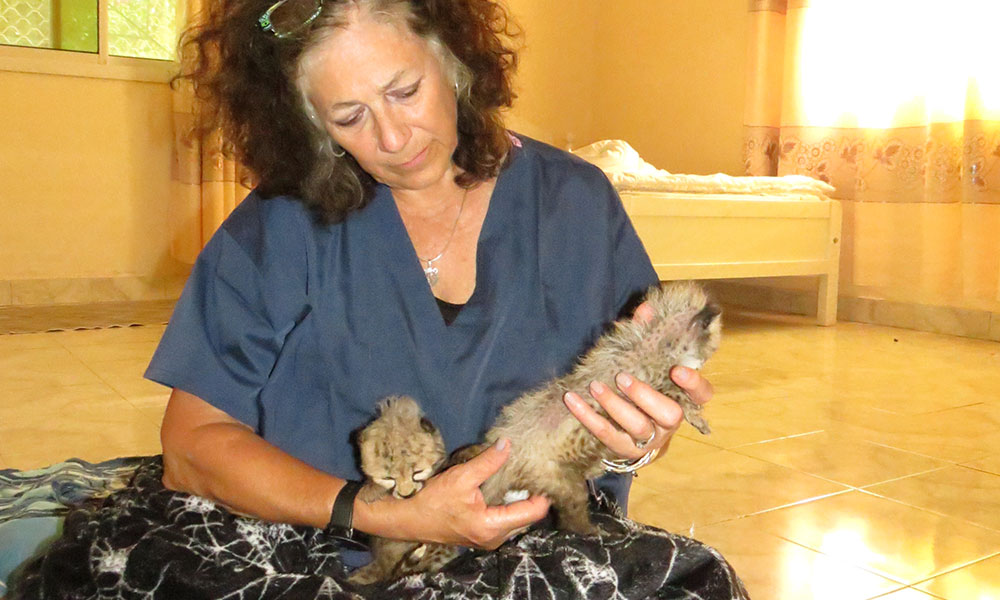
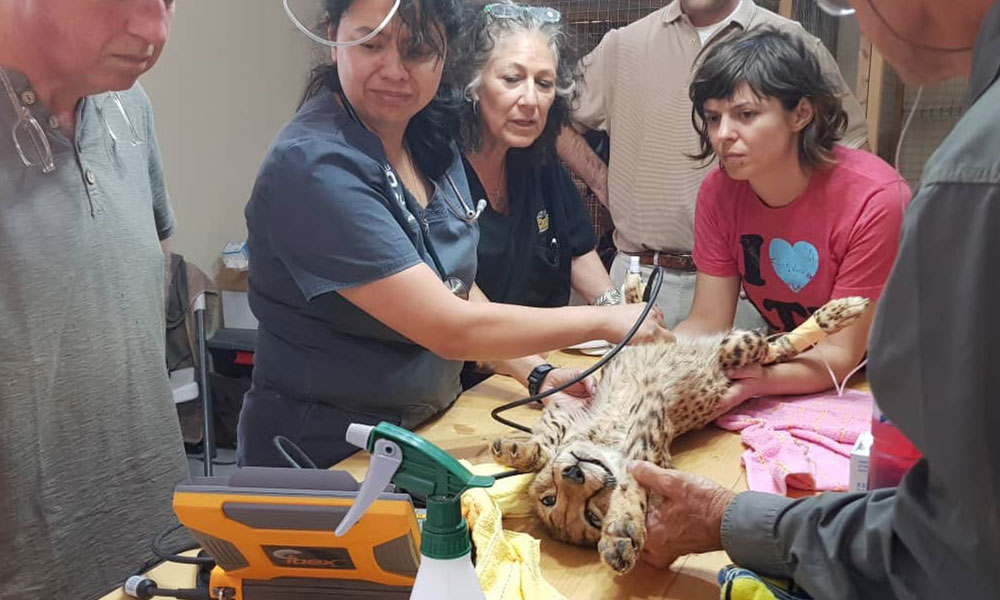
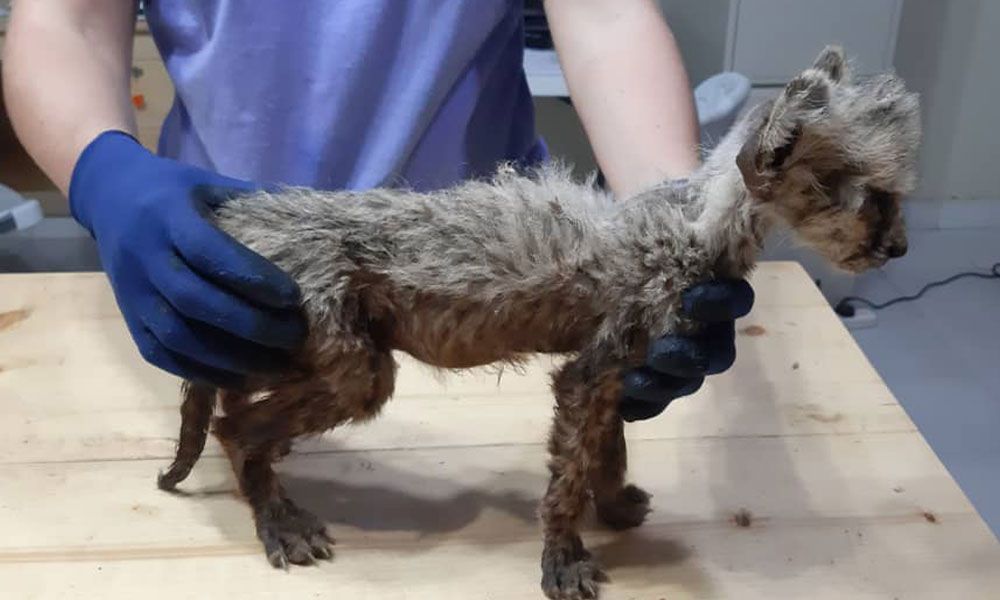
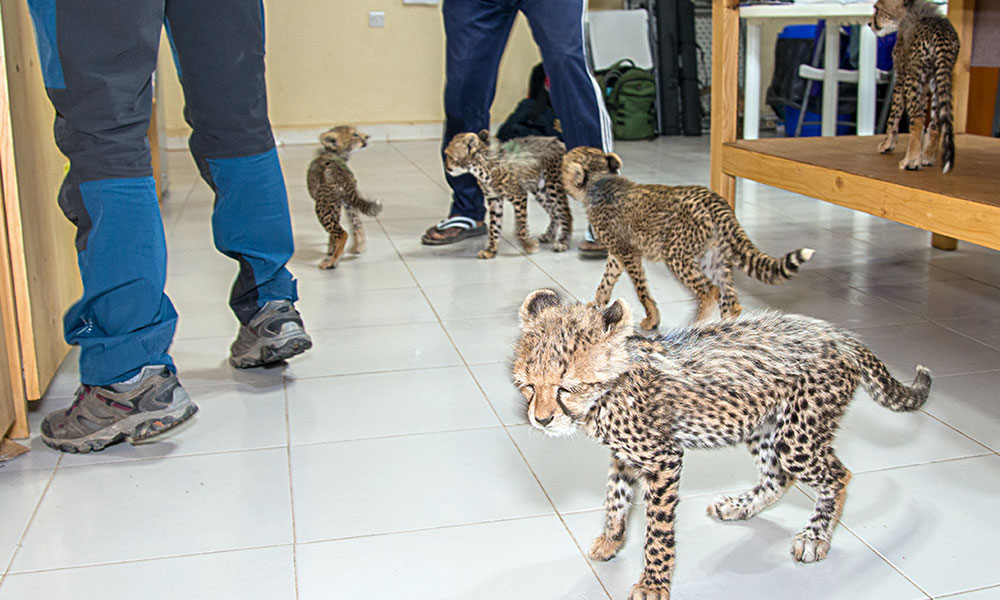

Cheetah Conservation Fund
Conservation Fund (CCF) is the global leader in research and conservation of cheetahs and dedicated to saving the cheetah in the wild. CCF has created a set of integrated programmes based on its research to address threats to the cheetah and its ecosystem. Founded in 1990, CCF is an international non-profit organisation headquartered in Namibia with a field base in Somaliland. CCF is celebrating its 30th anniversary in 2020, making it the longest running and most successful cheetah conservation organisation. For more information, please visit www.cheetah.org
About Dr Laurie Marker
Dr Laurie Marker is a conservation biologist recognized as one of the world’s leading cheetah experts. She began working with cheetahs at Oregon’s Wildlife Safari in 1974, and in 1977 initiated pioneering in situ research in Namibia. Dr Marker’s early work helped identify the species’ lack of genetic diversity. In Namibia, she learned that livestock farmers were killing hundreds of cheetahs annually as a perceived threat, setting the stage for her career-long research into cheetah biology, ecology, and conservation strategies to mitigate conflict. Dr Marker earned her DPhil in Zoology from the University of Oxford. She is an A.D. White Professor-at-Large at Cornell University and has published more than 150 peer-reviewed scientific papers and books on cheetah. Dr Marker’s awards include, E.O. Wilson Biodiversity Technology Pioneer Award (2015), Tyler Prize for Environmental Achievement (2010), and TIME Magazine’s Hero for the Planet.
About International Cheetah Day
Dr Marker is an internationally recognized expert on the cheetah. She designated Dec. 4 as International Cheetah Day in remembrance of Khayam, a cheetah she raised from a cub at Wildlife Safari in Winston, Oregon. Dr Marker brought Khayam to Namibia to determine if captive-born cheetahs could be taught to hunt. Their efforts were successful and eventually the pair returned to Oregon. But during this trip, Dr Marker witnessed African farmers removing wild cheetahs from the landscape as a perceived threat. In 1990, she launched CCF and relocated to the newly-formed nation to mitigate the problem of farmer-cheetah conflict. Because of her interactions with Khayam, Dr Marker dedicated her life to becoming the cheetah’s champion, and she chose Khayam’s birthday for this important honour.
Media Contact:
CCF: Susan Yannetti, Cheetah Conservation Fund [email protected] or +12027167756
Related Reading

